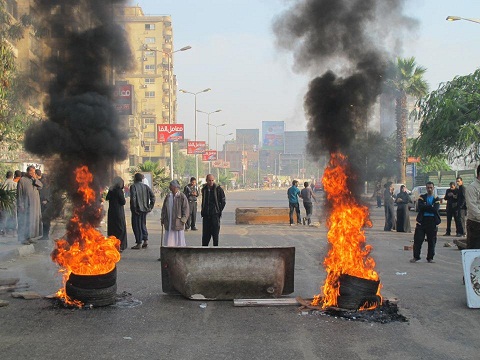UNITED NATIONS: Germany, India and South Africa take their places this week on the UN Security Council, giving it the look of a body that many see as the basis of a reformed custodian of world peace.
As Brazil has one more year on the council, many diplomats are looking at the next 12 months to see how the world’s increasingly assertive new players and old powers can work together on trouble spots ranging from Sudan to Iran’s nuclear drive.
The permanent five – Britain, China, France, Russia and the United States – who can veto any resolution, have dominated the council since 1945.
There has been no change since 1963 when the number of non-permanent members increased from six to 10.
With Ivory Coast and the Korean peninsula in crisis, a referendum in Sudan next week that could breakup Africa’s biggest nation and Palestinians stepping up demands for nationhood, Germany, India, South Africa, along with fellow new members Portugal and Colombia will have their diplomatic mettle tested within days.
The Western powers are looking for signs of the intentions of the pretenders for permanent seats, particularly India and South Africa. "There are some fears that work could be blocked," said one envoy, speaking on condition of anonymity.
With one eye on a tentative new campaign to change the council, all have been making conciliatory noises as they start their two year stay.
South Africa, Brazil and India have in the past been reluctant to impose sanctions on nations such as Iran.
But South Africa’s UN ambassador, Baso Sangqu, said that none of the new powers wanted a "gridlocked" Security Council.
"All of us will be raising voices on issues that are important to us and we hope that this will have a collective impact in terms of how the council responds, but there won’t be a them and us kind of configuration," he told AFP.
India is still celebrating the support given by US President Barack Obama for its drive to become a permanent Council member.
India’s ambassador Hardeep Singh Puri said the new and old nations would be "on the same page in terms of overall objectives. If there are perceptions of nuance you will find them all very constructive."
India has traditionally opposed human rights UN resolutions against individual nations but has changed this recently for North Korea and most notably Iran. "We are constantly reviewing our positions. This is a new India," the ambassador said in an interview.
"We want our tenure to create an added value for the broad membership.
And if countries feel that this council did a good job, it would certainly lend the discussion about Security Council reform further impetus," said Germany’s envoy Peter Wittig.
South Africa wants "to advance the African agenda within the Security Council," said Sangqu.
More than two thirds of the conflicts and crises that the Security Council handles are in Africa. "It is not something that we should be proud of," he said.
The Sudan referendum on January 9 will be one of the first tests and Sangqu said the international community must put resources into the reconstruction of both north and south Sudan after the vote in the south.
South Africa also wants greater international resources for Somalia, which the ambassador said should not become "a forgotten conflict", a fate which he said had already befallen Western Sahara. "The council is not doing anything" over the dispute between Morocco and Western Sahara guerrillas, he said.
Puri said India would put forward a very "strong voice" on terrorism and on peacekeeping. India is the biggest troop contributor to UN peacekeeping forces.
He said the Security Council 15 have to take the rest of the United Nations more seriously.
"I must say with a sense of regret that whenever I addressed the Security Council as a member of the General Assembly I always found second secretaries and third secretaries there – the Security Council has already done its work and now they are just listening to the others. I would like that to be changed."
Germany, already firmly in the western camp, wants to put a greater emphasis on peace building, according to its ambassador.
"We want to push for a forward looking council. We want the Council to take into account the regional and global conditions that lead to the build-up and outbreak of crisis. We need to act well before the first fatalities hit the headlines," Wittig said.
